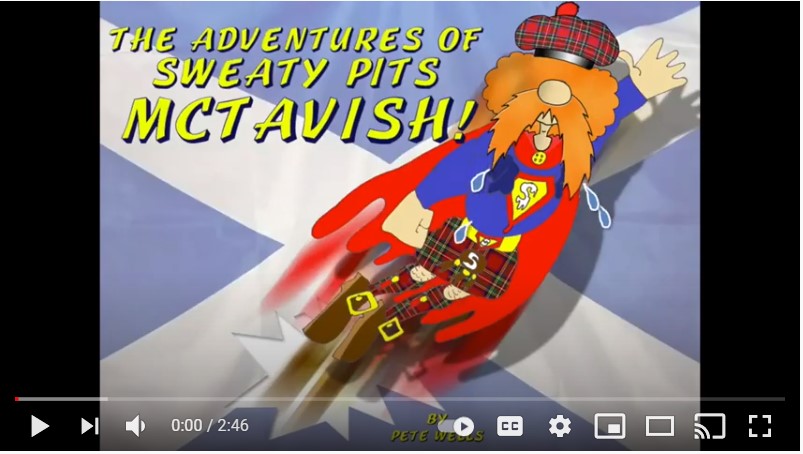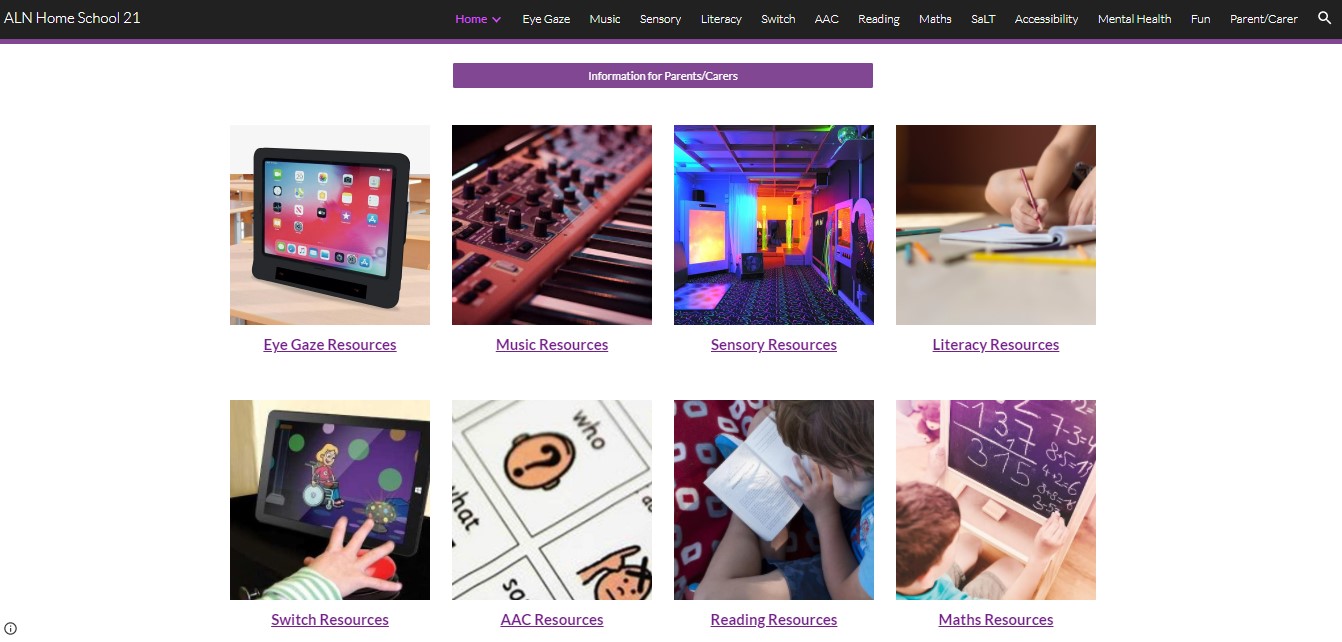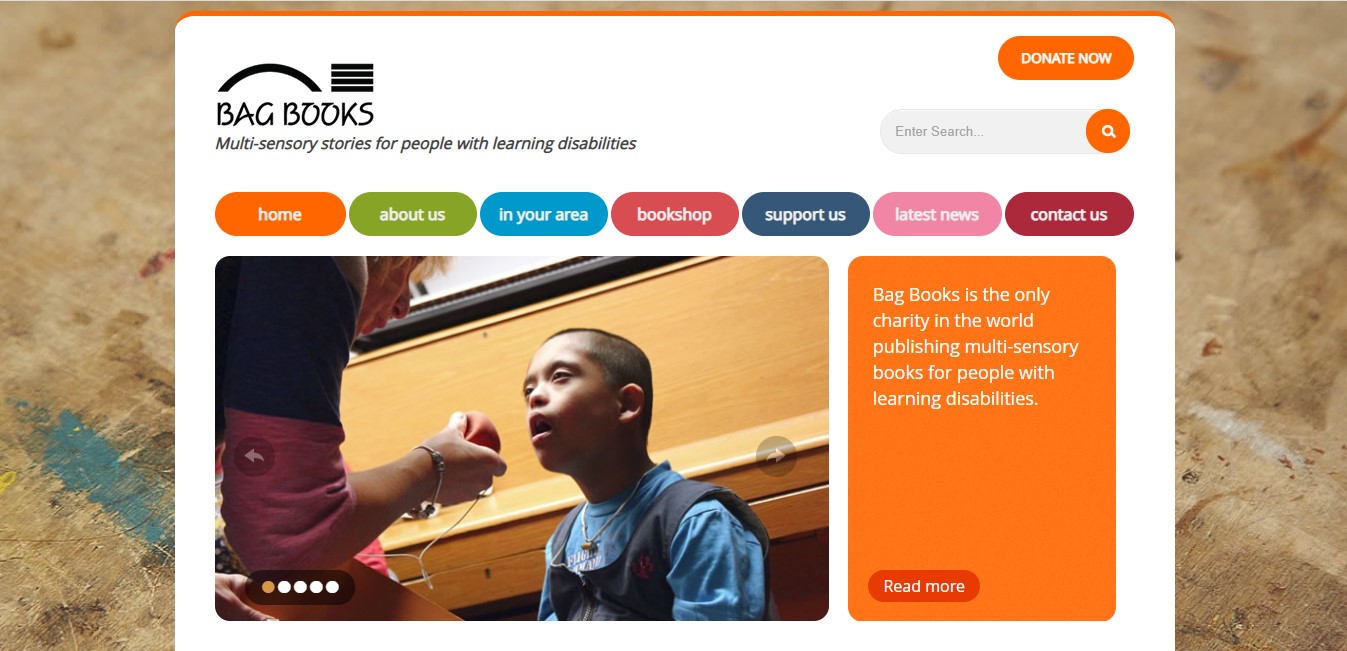Posted by Claire Harrison on the 7th January, 2021

Back in March we shared some links to resources for learning at home during the first lockdown period and you can still read about them in the CALL Blog archive. Here are some more which we think you might find useful as we begin another period of learning at home.
One of the many challenges of creating learning activities at home is making sure that families have access to resources. All these suggestions are for activities which don’t need any specialist equipment or software, other than a connection to the internet.
Story Resources
Sensory stories are a great way of scaffolding lots of learning and communication experiences. And with careful planning around resources, they can be one of the best ways for families to enjoy inclusive stories together.
Bag books are offering a free ‘DIY’ set of sensory stories especially for families to try at home. All the props are objects people are likely to already have or can be easily and cheaply acquired. Each story is a PDF which can be accessed by registering and entering a password. Click here to sign up. At the bottom of each story PDF is a link to a YouTube video demonstration of the story being told with a learner, a helpful feature and it’s always great to see learners experiencing stories and sharing their experiences.
Lots of schools use massage stories, which combine songs, rhymes, and stories with simple massage strokes. They are a fun and effective way of sharing stories and don’t need any props or equipment other than the story script and instructions. Families can try out a massage story which has been shared on the ‘The Non-Verbal Affective Care website, NAC Wellbeing’ website by Sandra Hooper and Mary Aitkinson, the co-founders of the story massage programme. Click here to access the ‘Hickory Dickory Dock’ story massage.
It’s well worth exploring the rest of the NAC Wellbeing website, as well as ideas and guidance, they provide links to research and evidence for their principles and suggestions. For example, in their ‘music' section there are suggestions and instructions for creating a Winter Musical Sensory Experience. All the props are things which are easily sourced around them home.

The popular Pete Wells Sensory Stories use animated PowerPoints to tell their (often!) gross stories. If accessing them on PowerPoint is tricky for families, they can always go to Pete’s YouTube channel to watch and listen to some the PowerPoints on video. It’s possibly a wee bit too chilly for the ‘Sheldon Snail ‘s Sunbathing Session’ story right now, but you can watch ‘Dozy Doris’, ‘Millie the Mermaid’, ‘Beat The Corona Blues’ and ‘The Amazing Adventures of Sweaty Pits McTavish’….and you can decide what you think of Pete’s attempt at a Scottish accent!
Symbol Resources
On the previous Complex Needs home learning blog we shared a link to the @SchoolsNLc blog. They had just begun sharing Boardmaker Picture Communication Resources (PCS) via their Twitter feed and blog. Since March 2020 they have continued to share huge amounts of high-quality communication and learning activities. If you’re a Twitter person, they are well worth following as well as keeping an eye on their blog. See here on their blog for a compilation of resources for lockdown.
Other Resources
Joanna Grace has continued to keep her ‘COVID-19 Educational Resources link’ page updated on her website, with links organised into Inclusive Resources, Live Activities, Literacy Linked Activities, Communication Resources and Activities, Social and Physical Activities, Numeracy Linked Activities, Humanities, Science & Technology Activities, and a selection of mixed resource packs from schools.

Kim Lawther has replaced her ‘ALN Home School 19’ portal with a website, ‘ALN Home School 2021. It’s very well organised and easy to navigate, with links to Eye Gaze Resources, Sensory Resources. Switch Resources and lots more.




Our social media sites - YouTube, Twitter and Facebook